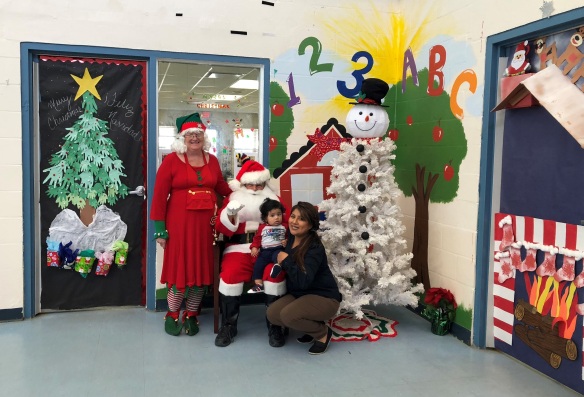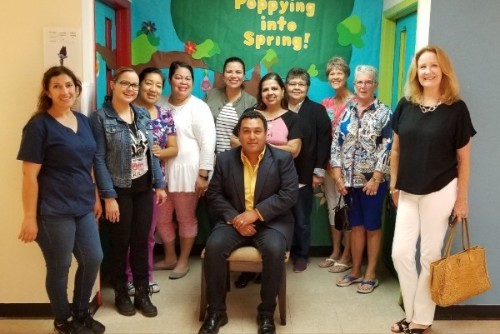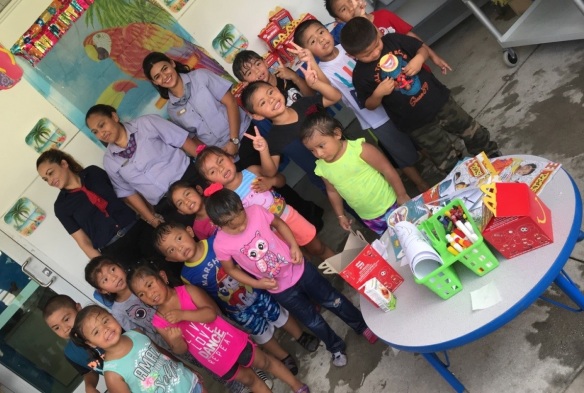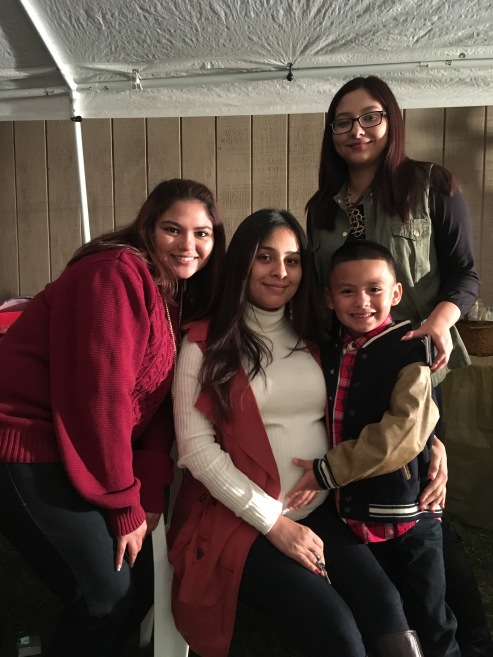
I recently had the opportunity to conduct a phone interview with Iralda Badillo, one of our team members at the ECMHSP Bowling Green Center, located in Florida West. Keep reading to learn more about her professional growth since joining East Coast Migrant Head Start Project.
Can you please tell me about your background?
I was born in Mexico and came to the United States when I was eight-years old. We arrived in Jacksonville, Georgia during the tomato season. My parents worked in the tomato fields for about two seasons, then traveled to Florida to pick strawberries and tomatoes. Our next stop was up north in a small town in North Carolina named Burgaw. There, my parents would pick blueberries. Finding a place to live for the seven of us was always a challenge, but my parents managed to find a small trailer that I shared with my two brothers and two sisters. About two years later, my parents separated. My dad found a year-round job and my mom started traveling to follow the tomato, strawberry, and blueberry harvest. For the next six years, I kept traveling between North Carolina, Florida, and New Jersey, depending where my mom was working. I grew tired of switching schools every three to four months. I also felt that I could do much better academically. While attending Bartow High School in Florida during 11th grade, I was offered a four-year scholarship to any university in Florida, but for personal reasons I wasn’t prepared to go to college. Instead, I moved to New Jersey for senior year, but didn’t give it my all. I barely went to classes and was dropped by the school. Then it really hit me, and I knew I had to at least graduate from high school. Every state runs their semesters differently, so if I stayed in New Jersey, I would’ve had to go to school an additional year. I asked my dad to send me money so I could take the bus to North Carolina. I was determined to graduate during that last semester. I made the varsity soccer team and played midfielder. Although my GPA dropped, I still graduated with a good GPA. I was happy to graduate with friends I had gone to school with throughout the years. After graduation, I moved to Florida with my older sister and started working at a tomato packing house. I learned a lot and am always grateful for that opportunity. Working with this company, we traveled from Florida to Virginia between the months of May and August. I did this for two seasons, then I met my now husband. We are currently married and have an eight-year-old daughter, a nine-month-old son, and a baby on the way.

How did you start working for East Coast Migrant Head Start Project?
I started working with East Coast in September of 2014 as a Family Service Worker at the ECMHSP Myakka Center. I did that position for almost three seasons, then I found out the Program Assistant position had become available. I got the position thanks to my experience from previous jobs. Now I am working at the ECMHSP Bowling Green Center, where Santiago, my youngest child has been attending since December. I’m grateful to see him receiving Head Start services. I absolutely love what I do! The best part is that I get to engage with the families every day.
What does your Program Assistant position consist of?
I help with the daily operations of the center. I have human resources related responsibilities, such as on-boarding new hires and filing the paperwork for them. I talk to each staff member at my center. In addition, I process the center’s purchase orders and do a variety of monthly reports.
What are the resources that ECMHSP provides for you to be successful?
I work with specialists who are available to answer any questions that come up. I enjoy the different trainings that I receive. We get to discuss ideas from different centers and that helps us with problem-solving.
How do you maintain strong relationships with parents?
I come from a family that went from state to state following the harvest seasons. I have lived in similar environments. We have a lot in common, my dad speaks the Mixteco dialect, which I find that a lot of parents here at Bowling Green speak. I let the parents know I am here to help interpret, or anything I can possibly do for them. I know the struggles of working all day in the hot sun and rushing home to cook, clean, bathe kids, and prepare for the next day. I try to do what I can to make life easier for our families and build their trust.
What countries are primarily represented by your center’s farmworker families? What kind of agricultural work do the families perform?
We currently have 83 children enrolled. Our families are from Mexico, El Salvador, and Guatemala. They work with blueberries, strawberries, tomatoes, and some orange.
As an individual, what do you hope to accomplish at the center this season?
I would like to get to know each parent by their name, as well as their children. Serve our children and families to the best of our abilities, providing all the services they need to be successful.
Can you please share a challenge that you’ve had to overcome at your center?
I have been at the ECMHSP Bowling Green Center since October 22, 2018. Staff works differently and that can sometimes take some time to adapt to. Every day I work with my co-workers and learn from each person’s area of expertise. We all share the same mission.
What plans do you have for the future?
I want to go back to school and get a degree in human resources or business management. I’m still trying to decide between the two career paths, but I know I love working to help people. My goal is to start taking at least two online classes next year.
Thank you for taking the time to let me interview you, Iralda. Thank you for always putting our farmworker families first. We wish you a long career at ECMHSP!








































